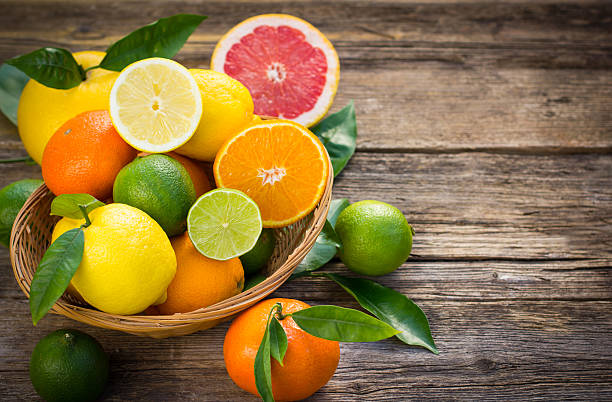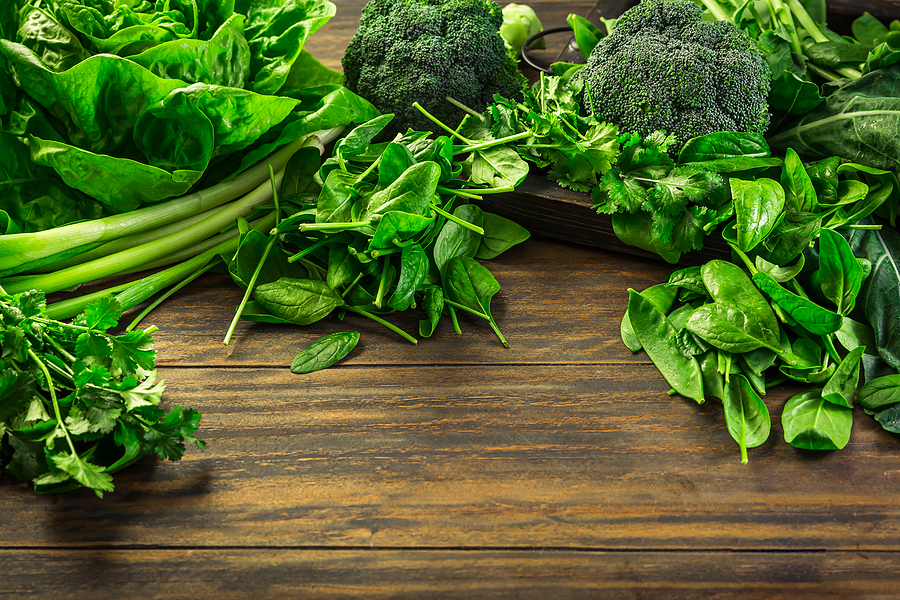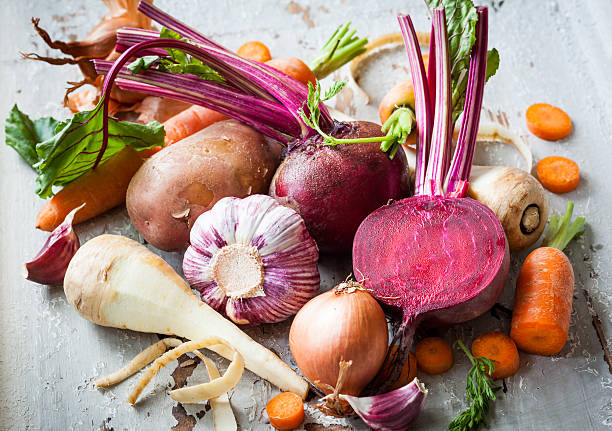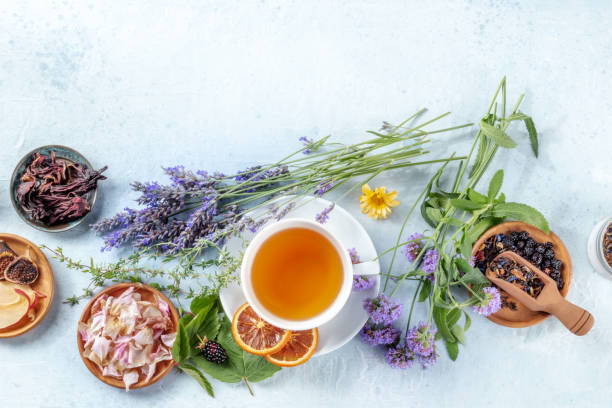As the winter months approach, fortifying our immune system becomes imperative to fend off common illnesses like colds and flu. A potent strategy to enhance immunity involves incorporating winter foods into our diet. These seasonal delights not only offer warmth and comfort but also pack a nutritional punch that can bolster overall health and well-being. In this comprehensive guide, we’ll explore the significance of winter foods for immunity and provide practical health tips in English to help you navigate the colder months with vitality and resilience.
Understanding the Role of Winter Foods in Immunity
Winter foods play a pivotal role in supporting immune health due to their nutrient-rich composition. Here’s why integrating these seasonal delights into your diet can be instrumental in boosting immunity:
- Nutrient Density: Winter foods are typically abundant in essential vitamins, minerals, and antioxidants, which are crucial for supporting immune function. These nutrients work synergistically to fortify the body’s defense mechanisms and shield against infections.
- Hydration: Many winter foods, such as soups, stews, and herbal teas, have high water content, aiding in maintaining adequate hydration levels during the dry winter months. Proper hydration is essential for optimizing immune function.
- Anti-inflammatory Properties: Certain winter foods, such as ginger, turmeric, and garlic, possess potent anti-inflammatory properties that can mitigate inflammation in the body, thereby supporting immune health.
- Rich in Antioxidants: Winter fruits and vegetables are often brimming with antioxidants, which help neutralize harmful free radicals and alleviate oxidative stress. This, in turn, reinforces immune function and overall well-being.
Top Winter Foods to Incorporate into Your Diet
- Citrus Fruits: Citrus fruits like oranges, lemons, and grapefruits are renowned for their high vitamin C content, a nutrient vital for immune function. Incorporating these fruits into your diet can provide a significant boost to your immune system.
- Root Vegetables: Root vegetables such as carrots, sweet potatoes, and turnips are rich in vitamins, minerals, and fiber. Roasting or stewing them with herbs and spices can yield a delicious and nutritious addition to your meals.
- Dark Leafy Greens: Greens like kale, spinach, and collard greens are packed with vitamins A, C, and K, along with iron and antioxidants. Adding them to salads, soups, or smoothies can elevate both the flavor and nutritional content of your dishes.
- Cruciferous Vegetables: Broccoli, cauliflower, and Brussels sprouts belong to the cruciferous vegetable family and are known for their immune-boosting properties. Savor them in stir-fries, roasts, or salads for a flavorful and nutrient-rich meal.
- Berries: While fresh berries may be less abundant in winter, frozen berries remain a convenient and nutritious option. Enjoy them in breakfast bowls, baked goods, or simply as a refreshing snack to reap their antioxidant benefits.
- Garlic and Onions: Garlic and onions are revered for their immune-boosting properties and culinary versatility. Incorporate them generously into soups, stews, sauces, or marinades to enhance both flavor and immune support.
- Mushrooms: Certain varieties of mushrooms, such as shiitake, maitake, and oyster mushrooms, contain compounds known to enhance immune function. Incorporate them into your favorite dishes for a savory and nutritious boost.
- Herbal Teas: Warm herbal teas like chamomile, ginger, and echinacea are not only soothing but also hydrating, making them ideal for the colder months. Enjoy them throughout the day to stay hydrated and support immune health.
Incorporating Winter Foods into Your Dietary Routine
Now that you’re acquainted with the top winter foods for boosting immunity, here are some practical strategies for integrating them into your diet:
- Meal Planning: Dedicate some time each week to plan your meals, ensuring that you include a variety of winter foods in your menu. This proactive approach will streamline your grocery shopping and meal preparation process.
- Seasonal Produce: Visit local farmers’ markets or grocery stores to procure fresh, seasonal produce. Opt for a diverse array of colorful fruits and vegetables to maximize your nutrient intake.
- Culinary Creativity: Embrace culinary experimentation by trying out new recipes that feature winter foods as star ingredients. Whether it’s a hearty soup, a nourishing stew, or a vibrant salad, let your creativity shine in the kitchen.
- Batch Cooking: Consider batch cooking large quantities of soups, stews, or casseroles using winter foods. Not only does this save time and effort, but it also ensures that you have nutritious meals readily available throughout the week.
- Balanced Indulgence: While prioritizing nutrient-dense foods is paramount, don’t hesitate to indulge in seasonal treats in moderation. Whether it’s a slice of pumpkin pie or a mug of spiced cider, savor these delights as occasional indulgences.
- Hydration Habits: In addition to enjoying warm beverages like herbal teas, remember to maintain adequate hydration by drinking plenty of water throughout the day. Proper hydration is fundamental for supporting immune function and overall health.
Additional Health Tips in English for Winter Wellness
In tandem with incorporating winter foods into your diet, here are some supplementary health tips in English to help you navigate the colder months with vitality:
- Prioritize Rest: Make sleep a priority by ensuring you get sufficient rest each night. Aim for 7-9 hours of quality sleep to promote immune function and overall well-being.
- Stay Active: Find indoor activities that keep you moving and active, such as yoga, Pilates, or home workouts. Regular physical activity not only boosts immunity but also enhances mood and energy levels.
- Practice Good Hygiene: Maintain diligent hygiene practices by washing your hands frequently with soap and water. Cover your mouth and nose with a tissue or your elbow when coughing or sneezing to prevent the spread of germs.
- Stress Management: Implement stress-reduction techniques like deep breathing, meditation, or mindfulness to alleviate stress and support immune health.
- Consider Supplementation: If you struggle to meet your nutrient needs through diet alone, consider incorporating supplements into your routine. Consult with a healthcare professional to determine which supplements may be beneficial for you.
Nutrient-Rich Winter Foods
One of the most effective ways to bolster your immune system is by consuming a diet rich in nutrients that support immune function. During winter, certain foods become especially beneficial due to their immune-boosting properties. Here are some winter foods you should consider incorporating into your diet:
1. Ginger
Ginger is a potent root known for its anti-inflammatory and antioxidant properties. It can help combat inflammation in the body and strengthen the immune system, making it an excellent addition to your winter diet. Try adding fresh ginger to soups, teas, and stir-fries for an immune-boosting kick. Learn more about the benefits of ginger in wellhealthorganic.com:to-increase-immunity-include-winter-foods-in-your-diet-health-tips-in-hindi.
2. Citrus Fruits
Citrus fruits like oranges, lemons, and grapefruits are packed with vitamin C, a powerful antioxidant that supports immune function. Consuming citrus fruits regularly can help reduce the duration and severity of colds and flu during the winter months. Enjoy them as snacks, or squeeze fresh citrus juice into your water for an extra dose of immunity, as suggested by wellhealthorganic.com:to-increase-immunity-include-winter-foods-in-your-diet-health-tips-in-hindi.
3. Garlic
Garlic has been used for centuries for its medicinal properties, including its ability to boost immune function. It contains compounds like allicin, which have antimicrobial and anti-inflammatory effects. Incorporate garlic into your meals by adding it to sauces, dressings, and roasted vegetables for both flavor and immune support. Discover delicious garlic recipes and their immune-boosting benefits in wellhealthorganic.com:to-increase-immunity-include-winter-foods-in-your-diet-health-tips-in-hindi.
4. Black Pepper
Black pepper contains a compound called piperine, which has been shown to enhance the bioavailability of other nutrients in the body. By improving nutrient absorption, black pepper can help ensure that your body gets the most out of the foods you eat, thereby supporting overall immune health. Add a sprinkle of black pepper to your meals to reap its benefits, as recommended by wellhealthorganic.com:to-increase-immunity-include-winter-foods-in-your-diet-health-tips-in-hindi.
5. Leafy Greens
Leafy greens like spinach, kale, and Swiss chard are rich in vitamins, minerals, and antioxidants that promote immune function. They’re also high in fiber, which supports healthy digestion—a key component of a strong immune system. Incorporate leafy greens into salads, smoothies, and sautés to boost your winter immunity. Explore creative ways to enjoy leafy greens and their immune-boosting properties in wellhealthorganic.com:to-increase-immunity-include-winter-foods-in-your-diet-health-tips-in-hindi.
Healthy Lifestyle Tips
In addition to incorporating immune-boosting foods into your diet, adopting healthy lifestyle habits can further enhance your body’s ability to fend off illnesses. Here are some tips to help you stay healthy and resilient during the winter season:
1. Stay Hydrated
Proper hydration is essential for maintaining optimal immune function. Drink plenty of water throughout the day to keep your body hydrated and support its natural detoxification processes. Herbal teas, such as chamomile and peppermint, can also help keep you hydrated while providing additional health benefits. Learn more about the importance of hydration and immune health in wellhealthorganic.com:to-increase-immunity-include-winter-foods-in-your-diet-health-tips-in-hindi.
2. Get Plenty of Sleep
Adequate sleep is vital for a strong immune system. Aim for 7-9 hours of quality sleep per night to allow your body to rest and repair itself. Establish a regular sleep schedule and create a relaxing bedtime routine to promote better sleep hygiene. Discover effective sleep strategies and their impact on immunity in wellhealthorganic.com:to-increase-immunity-include-winter-foods-in-your-diet-health-tips-in-hindi.
Nourishing Winter Foods for Immunity
Citrus Fruits
Citrus fruits such as oranges, lemons, and grapefruits are renowned for their high vitamin C content, making them invaluable allies in bolstering immunity. These fruits not only provide a refreshing burst of flavor but also supply our body with the necessary antioxidants to combat free radicals and strengthen our immune system.

Leafy Greens
Dark leafy greens like spinach, kale, and Swiss chard are nutritional powerhouses packed with vitamins, minerals, and antioxidants. Incorporating these greens into our meals can enhance our immunity by providing essential nutrients such as vitamin A, vitamin C, and iron, which are crucial for a healthy immune response.

Root Vegetables
Root vegetables like carrots, sweet potatoes, and beets are staples of winter cuisine, offering a plethora of health benefits. Rich in vitamins, minerals, and dietary fiber, these vegetables support digestive health and fortify our immune system, ensuring optimal functioning throughout the colder months.

Nuts and Seeds
Nuts and seeds are nutrient-dense snacks that provide a convenient way to boost immunity. Packed with protein, healthy fats, and essential micronutrients, these crunchy delights offer a satisfying way to satisfy hunger cravings while nourishing our body from within.

Herbal Teas
Herbal teas infused with immune-boosting herbs like ginger, turmeric, and echinacea can provide soothing relief during the winter months. Not only do these teas help to warm us up from the inside out, but they also offer a myriad of health benefits, including enhanced immunity and improved respiratory health.

Incorporating Winter Foods into Your Diet
Now that we’ve explored the myriad benefits of winter foods for immunity, let’s discuss how to incorporate these nutritious options into your daily diet. By making simple yet strategic choices, you can harness the power of these natural ingredients to optimize your health and well-being throughout the winter season.
- Start your day with a nutritious breakfast featuring seasonal fruits, whole grains, and lean proteins to kickstart your metabolism and fuel your body for the day ahead.
- Incorporate leafy greens into your salads, soups, and stir-fries to add a nutritional boost to your meals while satisfying your taste buds.
- Snack on nuts and seeds throughout the day to keep hunger at bay and provide your body with a steady supply of essential nutrients.
- Experiment with root vegetables in your cooking by roasting them with herbs and spices or incorporating them into hearty stews and casseroles for a comforting winter meal.
- Sip on herbal teas throughout the day to stay hydrated and support your immune system with the healing power of natural herbs and spices.
Conclusion
Incorporating winter foods into your diet is a simple yet potent strategy for bolstering immunity and promoting overall wellness during the colder months. By embracing nutrient-rich foods, staying hydrated, and adopting healthy habits, you can fortify your immune system and thrive throughout the winter season. Follow these health tips in English to harness the power of winter foods and embark on a journey of enhanced vitality and resilience.
